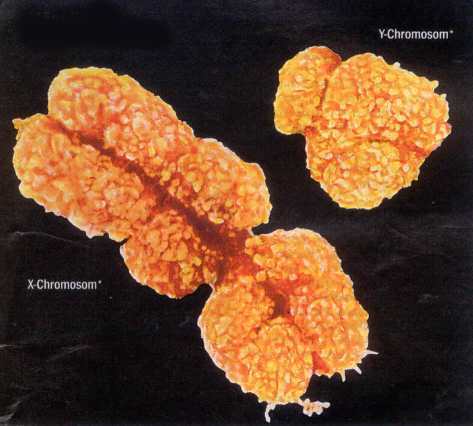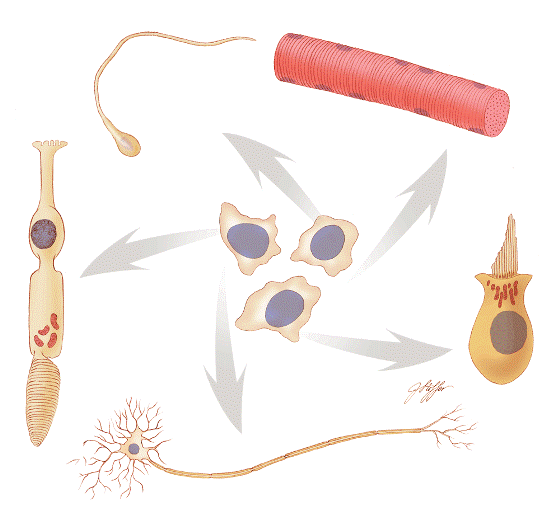 There is a theory that sooner or later, the male gender will become extinct. This is because old research has said that the male Y chromosome is genetically decaying, which means that there will no longer be men on this planet in five million years. However, that was the old research. In 2005, scientists compared the human Y chromosome with those of chimpanzees, who evolved away from humans six million years ago. Now, they have also compared human Y chromosomes with those of the rhesus monkey, which have been a separate species from humans for 25 million years. These studies show that the Y chromosome has only lost one gene in the last 25 million years. Its genetic decay is very, very slow, if it has not stopped yet. Men will be on this planet for many more millions of years to come.
There is a theory that sooner or later, the male gender will become extinct. This is because old research has said that the male Y chromosome is genetically decaying, which means that there will no longer be men on this planet in five million years. However, that was the old research. In 2005, scientists compared the human Y chromosome with those of chimpanzees, who evolved away from humans six million years ago. Now, they have also compared human Y chromosomes with those of the rhesus monkey, which have been a separate species from humans for 25 million years. These studies show that the Y chromosome has only lost one gene in the last 25 million years. Its genetic decay is very, very slow, if it has not stopped yet. Men will be on this planet for many more millions of years to come.Resource:
http://www.bbc.co.uk/news/science-environment-17127617

